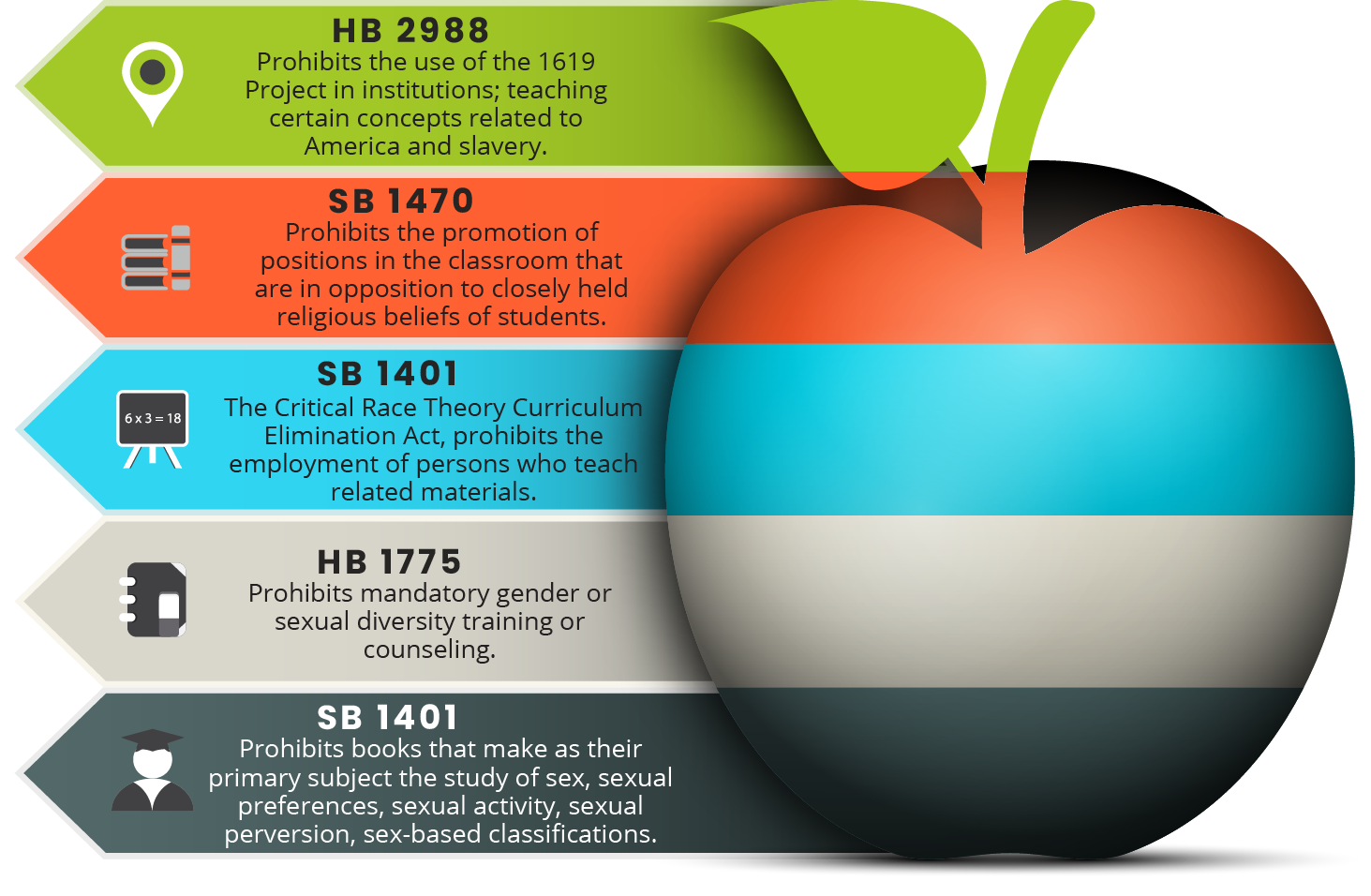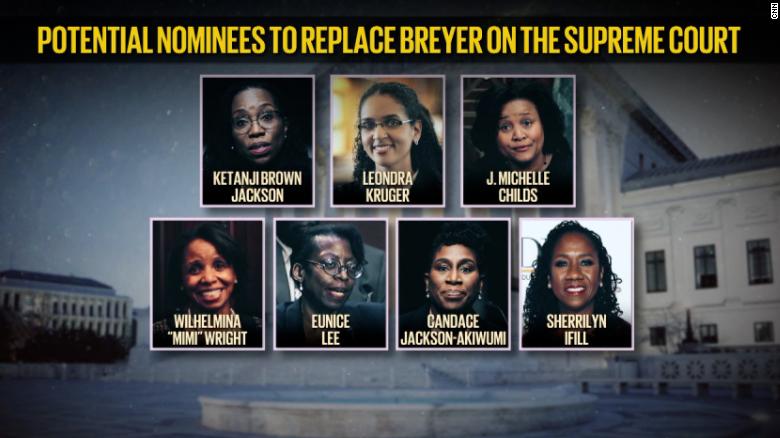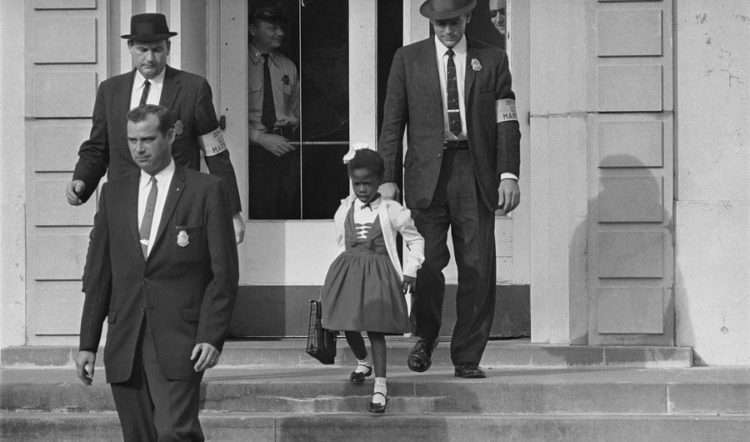In this season of controversial education bills, one that stands out is
House Bill 2988 which would limit the conversations around race and racism in schools across Oklahoma. Introduced by Republican Rep Jim Olsen, the explicit aim of the proposed legislation is to restrict how teachers discuss such issues as slavery and its role in creating the United States. The bill was conceived in direct response to Pulitzer Prize-winning New York Times journalist Nikole Hannah-Jones’s 1916 Project, which uses critical race theory to examine the history of Black enslavement. Olsen has said that this bill is intended to prohibit the teaching of the 1916 Project. The legislation would also prohibit teaching that one group is the unique oppressor and one the unique victim in the institution of enslavement in the United States.
Olsen’s introduction of the bill in late 2021 drew immediate fire from other Oklahoma lawmakers and leading educators. Democratic state Rep. Monroe Nichols, who has a strong record of supporting educational reform in Tulsa and statewide, led the attack.
“Throughout history, we’ve had Holocaust deniers, 9/11 deniers, Sandy Hook deniers,” he said in a tweet. “Don’t give Rep. Olsen too much credit for his denial and romanticizing of American slavery.”
“He’s just joining an exclusive club of hate & division that none of us really want to be a part of,” Nichols added.
Olsen’s proposed legislation comes on the heels of HB 1775, signed by Governor Kevin Stitt in 2021. The controversial act — now law in Oklahoma — bans institutions in higher education from teaching that one race or gender is inherently superior to the other. It also prohibits any student from feeling guilty about their race or gender by forbidding the teaching that one group is inherently sexist or racist. Lastly, it bans mandatory diversity and inclusion training at Oklahoma colleges and universities.
Bans such as this have been central to the platform of the Republican party over the last two years.
Leading Oklahoma academics are grappling with how to enforce the law and simultaneously maintain academic integrity. Last May, University of Oklahoma President Joseph Harroz, Jr released a statement regarding the signing of HB 1775 into law. It stated that although OU’s mandatory diversity, equity, and inclusion training does not claim superiority of one race or sex, its mandatory nature does call its legality into question.
In response, the University of Oklahoma has now made the training voluntary for students; however, it continues to be mandatory for university employees. According to Harroz, “The training is one of the many elements that reinforce our belief that the development and preparation of the whole student takes a multi-faceted approach.” Harroz admitted that many of his colleagues feel this law sets dangerous limits on academic freedom. But he says that he does not think that was the intention of the Oklahoma legislature when they passed the law.
Intentions aside, for many students and administrators in Oklahoma Higher education, the effects of these laws – and the signals they send — are dangerous. Many of them are critical of both HB 1775 and the proposed HB 2988.
Amanda Chastang, former University of Tulsa graduate student and Assistant Vice President for Diversity, Equity, and Inclusion, believed that “By not teaching the truth, although harsh, we are lying to our students and doing them a grave disservice. This bill doesn’t prohibit discrimination. It only reinforces it by silencing people’s lived experiences.”
Some students in Oklahoma’s universities and colleges see these bills as extenuations of one of America’s greatest sins. Oklahoma State University Ph.D. student Erin Davis states, “One thing that I’ve noticed in this discourse, the legislators who are proposing these house bills, say that they do not align with our “Oklahoma values” however, if these are the Oklahoma values, they’re speaking of, they’re steeped in racism.”
The implications such legislative proposals have in Oklahoma, which bears the scars of the worst documented anti-Black violent event in the history of the United States, is palpable.
Gabrielle Miller, a Ph.D. student at the University of Tulsa, summarized the historical context well.
“HB 1775 & 2988 may be new attempts at erasing critically important histories, but the tactics they employ are certainly not new. Not new to the United States, and certainly not new to Oklahoma,” she said.
“The Tulsa Race Massacre is just one example of a nearly erased history whose absence in textbooks only stood to benefit the perpetrators of those violent acts and their descendants. Whose descendants does it serve to erase the stories that reveal the whole truth of what foundation this country was built up and operates from?”
Despite the controversy surrounding HB 1775, students and faculty at higher education institutions in Oklahoma say they have so far witnessed little to no chance with the way the intersections of race and history are taught.
“From what I have observed while being a teaching assistant, I believe that this political environment has made classes on race and racism even more crucial,” Miller said. “I have also witnessed overwhelmingly positive feedback from students (a majority of whom are white).” When it comes to the possibility of another anti-critical race theory bill being passed by the state legislator, Davis “hopes that educators continue to operate with integrity because (she) haven’t seen any change in the way race or history in (her) graduate program at Oklahoma State University are taught.”









